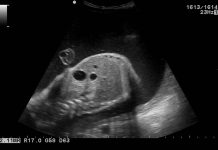An umbilical hernia in babies is a common condition that may concern parents but is usually harmless and self-resolving. Understanding what an umbilical hernia is, its prevalence, causes, and associated risks can provide reassurance and guidance for parents and caregivers. This article aims to delve into the intricacies of umbilical hernias in babies, including their causes, symptoms, diagnosis, and available treatment options, to help navigate this common occurrence with confidence and knowledge.
In This Article:
- What Is Hernia?
- How Common Is Hernia in Babies?
- What Causes Hernia in Babies?
- Risk Factors for a Baby’s Hernia
- What Are the Symptoms of Hernia in Infants?
- How is Hernia in Infants Diagnosed?
- Can a Hernia Heal Naturally?
- How is Hernia in Infants Treated?
- How to Care for a Baby After a Hernia Operation?
- Probable Side Effects and Complications of Hernia Operation
- What Are the Complications of Untreated Infant Hernia?
- Can You Prevent Hernia in Babies?
What Is Hernia?
A hernia occurs when an organ or tissue protrudes through an opening or weak spot in the surrounding muscle or connective tissue. In babies, the most common types of hernias are inguinal and umbilical hernias. An umbilical hernia occurs when the intestine or abdominal tissue bulges through the abdominal wall near the belly button. This results in a visible bulge or swelling, particularly when the baby cries, coughs, or strains during a bowel movement.
How Common Is Hernia in Babies?
Umbilical hernias are actually quite common in babies. In fact, they are seen in approximately 10–20% of all newborns. While the condition can be alarming for parents, it’s important to know that most umbilical hernias in babies are not painful and tend to resolve on their own as the child grows.
What Causes Hernia in Babies?
Umbilical hernias occur when the abdominal muscles do not close completely around the umbilical cord after birth. This can result in a small bulge or protrusion near the belly button. Factors such as premature birth, low birth weight, or a family history of umbilical hernias can increase the likelihood of a baby developing this condition. While umbilical hernias are not usually painful for babies, they can cause distress for parents who may worry about the appearance of the bulge.
Risk Factors for a Baby’s Hernia
Several factors can increase a baby’s risk of developing an umbilical hernia. These risk factors include premature birth, low birth weight, and African American descent. Additionally, conditions that increase intra-abdominal pressure, such as persistent coughing or chronic constipation, can also contribute to the development of an umbilical hernia in babies.
What Are the Symptoms of Hernia in Infants?
The most obvious symptom of an umbilical hernia is a visible bulge or swelling near the navel. This bulge may become more noticeable when the baby cries, coughs, or strains during a bowel movement. It is important to note that umbilical hernias are typically painless for babies, and the bulge is the primary symptom. In some cases, the bulge may be soft and easily pushed back in by a doctor, while in other cases, it may become firm and tender.
How is Hernia in Infants Diagnosed?
Diagnosing umbilical hernia in infants typically involves a physical examination by a healthcare professional. The doctor will assess the size of the bulge and may gently press on it to determine if it can be reduced or pushed back into the abdomen. In some cases, imaging tests such as ultrasound may be recommended to confirm the diagnosis and rule out any other underlying issues.
Can a Hernia Heal Naturally?
In many cases, umbilical hernias in infants may heal naturally without any medical intervention. As the baby grows and the abdominal muscles strengthen, the hernia may resolve on its own. Parents can help facilitate natural healing by avoiding any pressure on the hernia and ensuring that the baby maintains a healthy weight. However, it’s crucial to have regular check-ups with a healthcare provider to monitor the hernia’s progress and seek appropriate treatment if needed.
How is Hernia in Infants Treated?
If the umbilical hernia does not resolve on its own or if it becomes larger, treatment options may be considered. In some cases, a doctor may recommend a simple surgical procedure to repair the hernia. This procedure is typically safe and effective, and most babies recover well without any complications. It’s essential for parents to discuss the potential risks and benefits of surgery with their healthcare provider and make an informed decision based on the specific circumstances of their baby’s hernia.
How to Care for a Baby After a Hernia Operation?
Caring for a baby after a hernia operation requires attentiveness and patience. It’s essential to follow the doctor’s post-operative care instructions diligently. Keep the surgical area clean and dry, and monitor for any signs of infection, such as redness, swelling, or discharge. Some babies may experience discomfort, so providing gentle support and comfort is crucial. Be mindful of any unusual changes in behaviour, and contact the doctor if you have any concerns. Remember, each baby’s recovery may vary, so it’s important to stay in close communication with the healthcare provider.
Probable Side Effects and Complications of Hernia Operation
Like any surgical procedure, a hernia operation on babies may have potential side effects and complications. Some babies may experience temporary discomfort, irritability, or a loss of appetite. In rare cases, there could be complications such as infection, excessive bleeding, or issues related to anesthesia. It’s important for parents to be aware of these possibilities and to seek immediate medical attention if they observe any concerning symptoms.
What Are the Complications of Untreated Infant Hernia?
Leaving an infant hernia untreated can lead to various complications. The hernia may become incarcerated, which means that a portion of the intestine becomes trapped within the hernia sac, potentially leading to severe pain and tissue damage. In some cases, this can progress to a strangulated hernia, where the blood supply to the trapped intestine is cut off, resulting in a medical emergency. It’s crucial for parents to understand the potential risks of leaving a hernia untreated and to seek a medical evaluation promptly.
Can You Prevent Hernia in Babies?
While umbilical hernias in babies are often a result of the natural development of the abdominal wall, there are some measures that parents can take to minimise the risk. Handling babies gently and avoiding excessive pressure on the umbilical area may help reduce the likelihood of a hernia developing. Additionally, being mindful of proper lifting techniques and avoiding situations that could strain the baby’s abdominal muscles can be beneficial. However, it’s important to note that not all umbilical hernias can be prevented, and some may resolve on their own without the need for surgical intervention.
Conclusion
In conclusion, umbilical hernias are a common occurrence in babies and are usually harmless. Understanding the causes, symptoms, and treatment options for umbilical hernias can help parents feel more at ease and confident in caring for their baby. It is important to monitor the umbilical hernia and consult with a paediatrician for guidance on the best course of action. With time and proper care, most umbilical hernias in babies resolve without the need for surgical intervention.
Sources:
- https://kidshealth.org/en/parents/umbilical-hernias.html
- https://www.cincinnatichildrens.org/health/u/umbilical-hernia
3. https://www.ncbi.nlm.nih.gov/books/NBK459294/













